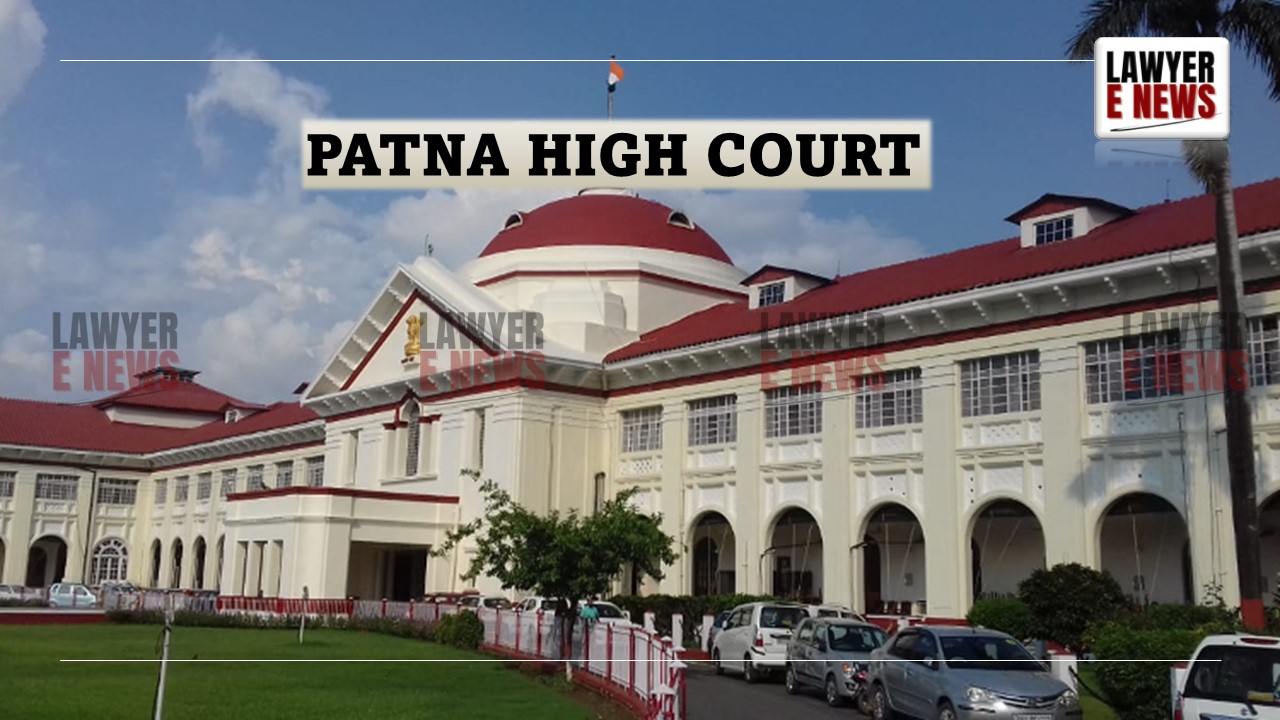-
by Admin
15 February 2026 5:01 PM



Patna High Court dismissed the appeal of Rajesh Kumar Bahardar @ Rajesh Bahardar @ Bokai Bahardar, confirming his conviction and life imprisonment for the abduction, rape, and murder of a school warden. The court, in its detailed judgment, upheld the findings of the trial court, ruling that the prosecution had established a complete and unbroken chain of circumstantial evidence connecting the accused to the crime.
The Division Bench, comprising Justice Rajeev Ranjan Prasad and Justice Jitendra Kumar, observed, “Where a case rests entirely on circumstantial evidence, the circumstances must form a complete chain, leaving no room for reasonable doubt as to the guilt of the accused.”
"Victim Last Seen Alive with Accused: Tempo Driver's Testimony Holds the Key"
The prosecution relied heavily on witness testimonies to prove that the appellant was last seen with the victim. PW-6 (Md. Mukhtar), the tempo driver, testified that the appellant lied to him, claiming the victim was his wife and persuading him to stop at the isolated Panar Bridge. PW-6 stated: “The man told me the woman was his wife, who was annoyed with him, and asked me to stop the tempo at Panar Bridge. After both alighted, he told me to proceed.”
PW-8 (another tempo driver) also identified the appellant and the victim traveling together earlier that day. The court observed that these testimonies “establish the victim’s proximity to the appellant before she disappeared, completing a crucial link in the chain of events.”
The appellant's claim that these witnesses were coerced into testifying was rejected by the court as baseless, with the bench stating, “The consistency in their testimonies corroborates their credibility.”
"Recovery of Body and Mobile Phone Ties Appellant to the Crime"
The recovery of the victim’s body and her Nokia mobile phone were pivotal pieces of evidence. PW-10 (Investigating Officer) testified that the appellant’s confessional statement led the police to the recovery of the victim’s body from the Khataghat riverbed.
The court noted, “The recovery of the dead body, pursuant to the appellant’s confession, is admissible under Section 27 of the Evidence Act and further corroborates the circumstantial evidence.”
Additionally, the victim’s mobile phone, seized from the appellant, was identified by call detail records. The court stated, “The CDR analysis shows that the victim’s mobile was used with a SIM card registered to the appellant’s brother, further linking the appellant to the crime.”
"Medical Evidence Confirms Rape and Strangulation as Cause of Death"
The medical evidence provided by PW-7 (the doctor who conducted the post-mortem) was crucial in confirming the cause of death. PW-7 testified that the victim had ligature marks on her neck, a fractured hyoid bone, and dislocated cervical vertebrae, consistent with strangulation. He also observed injuries in her private parts, indicating sexual assault.
The bench held, “The medical evidence conclusively proves that the victim was subjected to sexual assault before being strangled, aligning with the prosecution’s case.”
"Chain of Circumstances Consistent Only with Guilt of the Accused"
The judgment noted, “The prosecution has established an unbroken chain of events—from the victim leaving her school, to being last seen with the appellant, and finally to the recovery of her body based on the appellant’s confession. These circumstances collectively point only to the guilt of the appellant.”
Rejecting the appellant’s contention that the trial court had erred in appreciating the evidence, the bench stated, “The circumstances exclude every hypothesis except that of guilt. There is no room for reasonable doubt.”
"Appellant’s Claims of Coercion and Fabrication Found Meritless"
The appellant argued that the recovery of the victim’s mobile phone was fabricated and that witnesses were coerced into identifying him. The court dismissed these claims, stating, “The recovery is supported by seizure witnesses and corroborated by independent evidence, including call detail records. The defense’s allegations of coercion lack any substantive basis.”
The court further rejected the appellant’s argument that his conviction was based solely on his confession, clarifying, “The conviction is not based solely on the confession but is supported by a complete chain of circumstantial evidence, independent testimonies, and medical findings.”
"Rape and Murder of a School Warden: A Heinous Crime Deserving Strict Punishment"
The bench described the crime as “cold-blooded and heinous,” observing, “The appellant misled the victim to an isolated location, subjected her to sexual assault, and then killed her to conceal his crime. Such acts reflect a total disregard for human dignity and life.”
The Patna High Court upheld the trial court’s findings, concluding that the prosecution had proved its case beyond all reasonable doubt. The appellant’s conviction and life sentence for offenses under Sections 364, 376, and 302 IPC, along with concurrent sentences for other offenses, were affirmed.
The court emphasized, “The responsibility of the judiciary in cases based on circumstantial evidence is to ensure that the highest standards of proof are met. In this case, the prosecution has met these standards, leaving no room for doubt.”
Date of Decision: January 24, 2025
